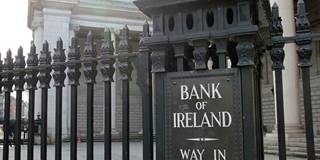While no one disputes that things have gone wrong in Greece, the Syriza-led Greek government's argument that fiscal consolidation necessarily leads to never-ending recession – which forms the core of its case for a new deal from its creditors – is not borne out by the facts. Just look at Ireland.
MUNICH – Greece’s government, led by the left-wing Syriza party, is demanding a new deal from its European creditors, claiming that the bailout program provided by the “troika” (the International Monetary Fund, the European Central Bank, and the European Commission) has plunged their country into a spiral of deflation and austerity. But, while no one disputes that things have gone wrong in Greece, the argument that fiscal consolidation necessarily leads to never-ending recession is not borne out by the facts.
Consider Ireland, which was among the countries hardest hit by the global economic crisis. Having become exceptionally bloated during the pre-2008 boom years, Ireland’s banks buckled under huge losses when the property bubble burst. To avert a devastating bank run, the government guaranteed the entire outstanding stock of deposits and liabilities.
As a result, government debt soared from 25% of GDP in 2007 to more than 120% in 2013. Add private debt, and the Irish sit on a debt mountain worth nearly 400% of GDP. In Greece, where private debt is much lower, total debt amounts to around 300% of GDP.

MUNICH – Greece’s government, led by the left-wing Syriza party, is demanding a new deal from its European creditors, claiming that the bailout program provided by the “troika” (the International Monetary Fund, the European Central Bank, and the European Commission) has plunged their country into a spiral of deflation and austerity. But, while no one disputes that things have gone wrong in Greece, the argument that fiscal consolidation necessarily leads to never-ending recession is not borne out by the facts.
Consider Ireland, which was among the countries hardest hit by the global economic crisis. Having become exceptionally bloated during the pre-2008 boom years, Ireland’s banks buckled under huge losses when the property bubble burst. To avert a devastating bank run, the government guaranteed the entire outstanding stock of deposits and liabilities.
As a result, government debt soared from 25% of GDP in 2007 to more than 120% in 2013. Add private debt, and the Irish sit on a debt mountain worth nearly 400% of GDP. In Greece, where private debt is much lower, total debt amounts to around 300% of GDP.